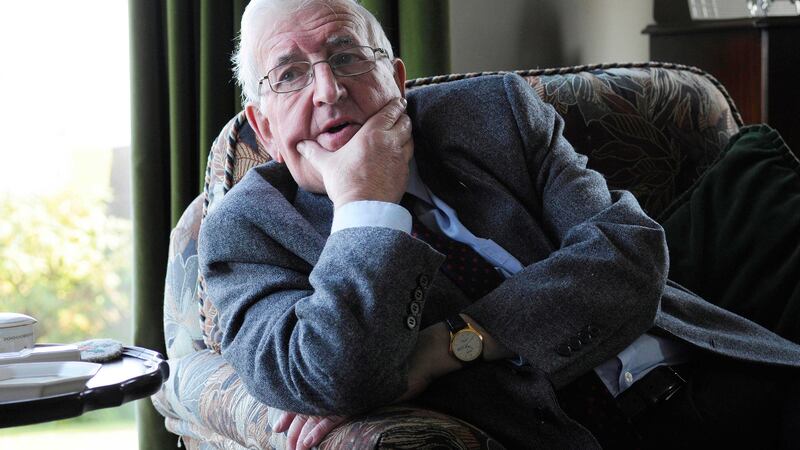LAST Thursday, reporting on the release of British state papers for the 1980s, the BBC and unionist newspapers led with the ‘revelation’ that the Northern Ireland Office regarded Gerry Kelly, then fighting extradition from the Netherlands, as ‘an extremely dangerous, resourceful and dedicated terrorist’. Shock, horror. Who knew?
Buried much further down the reports however was much more interesting and revealing material largely ignored by the media which help to explain why the problems of the north were more than the IRA campaign and remained so endemic.
Since November 1985 the Irish government, using its new powers acquired as a result of that month’s Anglo-Irish Agreement had been pressing the British government to inject resources into nationalist districts which had been deliberately neglected for decades on a variety of pretexts.
Indeed officials from the Department of Foreign Affairs had been appalled at the extent of poverty and dereliction in nationalist parts of Belfast and in Derry and worked hard to have a set of objective criteria drawn up to show the disparity of conditions in electoral wards across the north.
It was partly in response to such pressure that the NIO eventually produced a policy called Targeting Social Need.
It’s in this context the then head of the civil service Ken Bloomfield sent a memo to the secretary of state Tom King on April 11, 1987 laying out the problems especially in west Belfast where he described the ‘unique scale and concentration of these problems’.
In parenthesis he then threw in a gratuitously offensive comment which betrays a deeply prejudicial attitude to the constituency.
He wrote correctly that ‘a large section of the population is alienated from the institutions of government’ and then added ‘and indeed, in some respects, from normal civilised behaviour’. This is a despicable comment offered with no evidence.
The people of west Belfast were honourable people in 1987 as they are today as are the people of east Belfast, north Belfast, Derry or elsewhere, who can’t be condemned as ‘uncivilised’ as the result of a high crime rate, extreme poverty or the activities of paramilitaries in their midst.
Now think: if the head of the civil service is prepared to put that sort of insulting comment in writing, what sort of advice, what sort of mentality, was on offer to English politicians sent here who were supposed to be taking decisions affecting the lives of people living in those places?
Bloomfield went on in his memo to present what he thought might be a unionist view of any aid given to west Belfast, namely, ‘Do you have to kill British soldiers to benefit from a cornucopia of assistance’?
It should be said what was on offer in 1987 was hardly a ‘cornucopia’. Certainly not when compared with the millions poured into east Belfast to compensate for the loss of employment after the collapse of shipbuilding and heavy engineering – money Bloomfield acknowledged had been allocated.
On the other hand absolutely nothing had been done since the sixties to compensate north and west Belfast and Derry for the equally catastrophic loss of employment in dozens of textile mills which is not acknowledged.
There is much more in the documents which reveal the state of mind of NIO officials including the view of Quentin Thomas, an important negotiator with the IRA from 1991 on, who believed that Westminster had ‘to depend on unionists’ to run the north.
No question of equality of status between the two communities. It was English politicians, Douglas Hurd and Peter Brooke, not NIO officials who thought it morally right to have fair employment while NIO officials fought tooth and nail against Dublin’s and American efforts to establish the powerful 1989 act which finally set aside the deliberately ineffectual 1976 act.
Is it any wonder the officials in the British Cabinet Office and Taoiseach’s Office did everything in their power to ensure the NIO was kept in the dark about the 1985 negotiations which led to the Anglo-Irish Agreement? Otherwise there’d have been no agreement.









